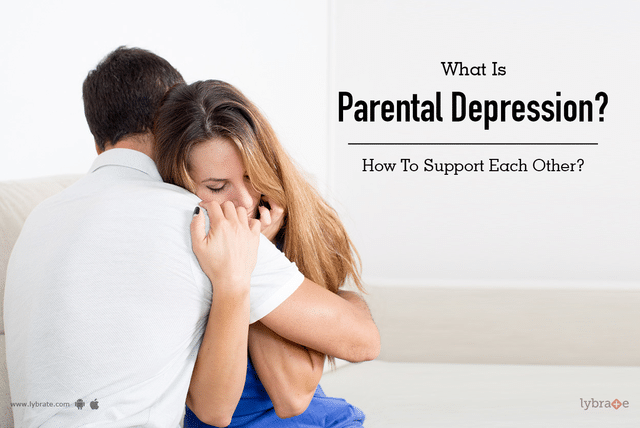What Is Parental Depression? How to Support Each Other?
Parental Depression is an aspect which affects the innocent child, right from the time it is in the mother's womb.
Maternal depression could be due to various reasons ranging from familial disharmony to poor health. Unfortunately, a depressed mother's pessimistic thoughts could pass on to the pure soul inside her. So the effect starts in utero. After birth, she may be careless and negligent towards a child whose most important requirement is love. And children of these mothers become victims of behavioral and cognitive problems and poor school performers. They may also acquire the illness of depression eventually.
A depressed father will display stress and agitation instead of engaging the young minds in interesting learning or other activities.
Hence, before stepping into parenthood, it's important to be mentally fit and not just physically healthy. Exercise and meditation is of great help and of course a happy home environment.
Supporting each other is the key to getting things on track again.
- Talk to your spouse: Chat with your spouse, showing affection, doing things with them and encouraging them to get out of the house are important.
- Appreciate her but respect your family: Help her see that the family needs her and appreciates that she is expecting. While doing the same ensure that you respect the feelings of your family members.
- Opt for specialist care: Offer to see a therapist and encourage her to take medications. Getting the help of an expert helps get guidance to handle difficult situations.
- Be emotionally present with her: Go with her to as many antenatal checkups as you can, and make sure you are there for the ultrasound scans. This encourages a woman and gives her the satisfaction that her partner is involved.
- Compliment her and pay attention to her: Many women find it difficult to cope with the changes in their body during pregnancy. She may be worried about stretch marks, concerned about weight gain or just be feeling not much like her old self. Make sure to compliment her and let her know how much you love her.
- Be a shoulder for her to cry on: Listen to all of her concerns, and offer her the reassurance and support she really needs.
- Be there to help: After the birth, your partner will need time to recover. She will be exhausted, sore and hormonal, and will be relying on you for support. Help with the baby, and do as much as you can.



+1.svg)
